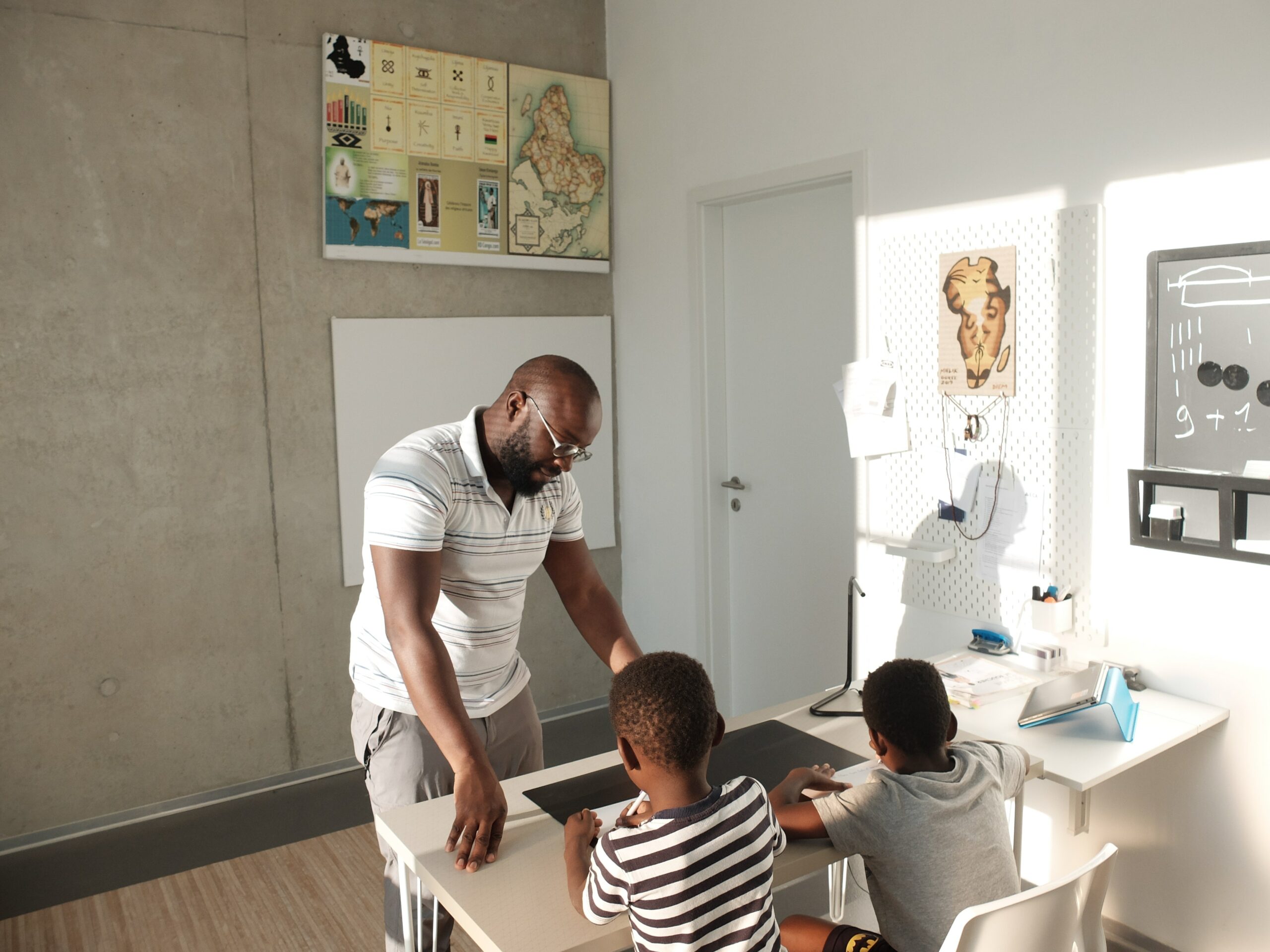
We had a conversation with Rachel, one of our award-winning tutors at Gradely about how best one can support a child’s education at home. This conversation was really geared at parents with children who are struggling academically or simply want to play a more efficient role in their children’s learning journey. She gave some supportive tips that you may find useful.
Tell us about yourself
My name is Rachel Abaire, and I am a teacher. I love teaching. I love children so much, and I am always excited to have children around and give them everything I know.
From your experience as a lesson teacher, a full-time teacher, and a homeschooling tutor, what are the major things that a parent really needs to support their child’s education at home?
I’m a realist, and I love to remind parents that there really isn’t any parent that isn’t homeschooling. It’s either you’re doing it part-time, you’re doing it full-time, or you don’t even know when you do it, but you are definitely contributing to your child’s education one way or another. So the best way to start is to choose to be super intentional about it. Be ready to give your time and patience because you’ll need it.
Now, to answer the question of what a parent needs to support their child’s learning at home, I’ll give 3 major points.
1. Build a relationship with your child’s teacher.
This may sound pretty obvious, but not every parent really takes the time to do this. It’s important because you and your child’s teacher are co-educators on your child’s learning journey. You need to know what they are being taught in school, and how, so you can take over when they get home. For example, if a particular technique is used to teach them addition and subtraction, you should use the same method.
You can also use this insight to understand your child’s learning style whether they are visual, auditory, kinesthetic, or reading & writing learners, so you can help them learn better. Whether we like it or not, the school alone will never be able to fully handle our children’s learning issues. So being informed, aware and on the same track as their teacher really helps.
Building a relationship with your child’s teacher will also help you understand your child better. You’ll get to know their strengths and weaknesses; if they’re great at art or bad at math, or if they love English, and aren’t so great with sciences. You’ll be able to identify their interests, and how to build interest in the subjects that they think are difficult in the right way, instead of forcing some of these subjects on them.
2. Become familiar with their curriculum
This tip is majorly for full-time homeschoolers. You have to try your best to become familiar with your child’s curriculum. Because at the end of the day, they’ll be taking the same exams with other students either at WAEC, JAMB or even common entrance and you want to be sure that you’re both on the right track.
You may also have to get a teacher friend that you can make enquiries from. Don’t be afraid to ask questions.
3. Do a lot of research
As a full or part-time homeschooling parent, you have to do lots and lots of research. There is so much information on the internet that even professional educators refer to all the time. Understanding their learning style should lead you to do even more research and digging, so you can know how to help them remember what they learn, and learn easily.
Also, learning is really not just ‘chalk and talk’. There are different types of learners, so you may have to use diverse methods whatever topic you want your child to learn or understand better. You can use YouTube videos and other free resources on the internet.
Children get distracted easily, especially when they are at home. How can a parent manage this, as children tend to see their parents as daddy and mummy and not teachers?
You need to as firmly and as softly as possible, set boundaries for them. Sit them down and discuss and explain to them that you’re also their teacher as much as you’re their parent. They won’t understand it in a day, but the more you talk bout it and actually teach them as it happens in school, the more they’ll get used to it. You should also take it as seriously as you want them to take it. When you give children instructions and are firm on them, they will understand and learn.
It might also help if you create a learning space for them Although, be reminded that this isn’t meant to make their learning rigid. The truth is that children are more willing to learn than we give them credit for. So don’t think that freedom for them when it comes to learning is a bad thing.
Apart from the once in 3 months checkpoint exams, they have at school, how can you measure your child’s performance as a parent?
Assessing children really isn’t just about reading and writing. Simple things like asking questions orally, and observing their attitude to answer them is part of assessments. I would also recommend Gradely, as a consistent way of assessing your child every day. If they take their daily assessments on the app, you’ll be able to know how they are currently doing and how they improved from the last time. The learning resources (video lessons, etc) that come with the app will also be a major contributor to their progress.
What are the fastest ways for a parent to find out their child’s learning gaps?
Well, you can experiment with various teaching methods to see what works, but a faster option would be to let them take a free pretest on Gradely. This pretest has about 15 questions and with the result, you’re able to see the topics your child is excelling in, struggling in, and even average at. Then you can tell where you need to start from, and what next to do.
Interested in supporting your child’s learning at home? Mrs Rachael is one of the tutors currently giving out free tutor sessions on Gradely. Click here to book one.
Share Post:
Eniola Makinde
Get our latest articles in your inbox. Sign up for email alerts.



